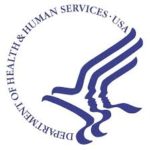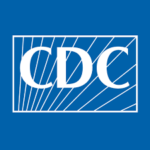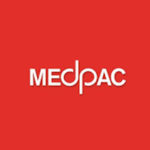The following is the latest health policy news from the federal government for May 18-23. Some of the language used below is taken directly from government documents.
 Congress
Congress
Leaders of the Senate Finance Committee have released a white paper outlining potential reforms of how Medicare pays physicians and how Medicare might better meet the needs of those with chronic illnesses. The white paper notes areas of interest the committee sees as opportunities for reform, including:
- Creating sustainable payment updates to ensure clinicians can own and operate their practices.
- Creating incentives for alternative payment models that reward providing better care at a lower cost.
- Rethinking how Medicare measures quality care.
- Improving primary care.
- Supporting chronic care benefits in Medicare fee-for-service.
- Ensuring continued access to telehealth.
Learn more from this committee news release and the white paper “Bolstering Chronic Care through Physician Payment: Current Challenges and Policy Options in Medicare Part B.”
 The Courts
The Courts
Pharmaceutical companies may limit the pharmacies to which they send discounted drugs under the 340B program and impose conditions on those pharmacies under a federal appeals court ruling issued this week. HHS and participating 340B providers opposed such limits. Learn more from the federal appeals court decision.
Centers for Medicare & Medicaid Services
- CMS has established a new option on cms.gov to enable individuals to file Emergency Medical Treatment and Labor Act (EMTALA) complaints more easily as part of an effort to educate the public and promote patient access to the emergency medical care to which they are entitled under federal law. Learn more from this CMS announcement; this updated CMS summary of patients’ rights and hospital responsibilities under emergency medical conditions; and this updated guide to filing EMTALA complaints.
CMS invites public comment on its intention to collect information from health care providers on two subjects:
- Medicaid managed care and supporting regulations – specifically, regulations that would govern provider attestation of hold-harmless arrangements for state hospital taxes and assessments.
- Methods for assuring access to covered Medicaid services – this addresses state reporting of sufficient payments for Medicaid services.
Interested parties are invited to send comments about CMS’s burden estimates or any other aspect of this collection of information, including the necessity and utility of the proposed information collection, its accuracy of the estimated burden, ways to enhance the quality, utility, and clarity of the information to be collected, and the use of automated collection techniques or other forms of information technology to minimize the information collection burden. Learn more about the specific information CMS intends to seek from this Federal Register announcement. The deadline for submitting comments is July 22.
- CMS has sent to state Medicaid programs an informational bulletin providing an update on the 2024 Supplemental Security Income (SSI) and spousal impoverishment standards because certain Medicaid income and resource eligibility standards are adjusted in July in accordance with changes in the SSI federal benefit rate and the Consumer Price Index. Find the CMS memo here.
- CMS has posted a bulletin presenting additional implementation edits on hospice claims for hospice-certifying physician Medicare enrollment. Find that bulletin here.
 Department of Health and Human Services
Department of Health and Human Services
- The Advanced Research Projects Agency for Health (ARPA-H), an independent agency within HHS’s National Institutes of Health, has launched the Universal PatchinG and Remediation for Autonomous DEfense (UPGRADE) program, a cybersecurity effort that will invest more than $50 million to create tools for information technology teams to defend hospitals more effectively from cyberattacks. Through an upcoming solicitation, UPGRADE will seek proposals in four technical areas: creating a vulnerability mitigation software platform; developing high-fidelity digital twins of hospital equipment; auto-detecting vulnerabilities; and auto-developing custom defenses. The agency expects to award multiple contracts. Learn more ARPA-H from the agency’s web page and learn more about the agency’s plan for UPGRADE from this ARPA-H news release and the UPGRADE program web page.
- A new issue brief from HHS’s Office of the Assistant Secretary for Planning and Evaluation (ASPE) summarizes analyses of Medicare fee-for-service data examining beneficiary use of tele-behavioral health services in 2019 and 2020. The analysis found that the number of Medicare beneficiaries receiving behavioral health care via telehealth increased dramatically during the COVID-19 public health emergency but the overall percentage of beneficiaries receiving behavioral health care services in any setting was lower in 2020 than in 2019 despite known increases in persons experiencing symptoms of anxiety or depression and increases in substance use during that period. Learn more from the ASPE report “Tele-Behavioral Health Use Among Medicare Beneficiaries During COVID-19.”
- HHS’s Office of Information Security and the Health Sector Cybersecurity Coordination Center have posted a presentation about business email compromises, including phishing, in the health care sector and how to spot and prevent such threats. The presentation is written primarily for a non-technical audience. Find it here.
- HHS’s Office of the National Coordinator for Health Information Technology (ONC) has published a report on the status of interoperable exchange of patient health information among U.S. hospitals. The report found that 70 percent of non-federal acute care hospitals engaged in all domains of interoperable exchange (send, find, receive, and integrate) routinely or sometimes in 2023; that less than half of hospitals (43 percent) routinely engaged in interoperable exchange while 27 percent sometimes engaged in interoperable exchange; and that lower-resourced hospitals (i.e., small, rural, critical access, or independent) engaged less frequently in interoperable exchange when compared to their higher-resourced counterparts. Find the report here.
- HHS has updated its “Avian Influenza Quick Facts,” which offers health care providers and emergency planners resource links to improve their readiness for potential human infections with avian flu. Find it here.
- HHS met many requirements but did not fully comply with the Payment Integrity Information Act of 2019 and applicable improper payment guidance in FY 2023, the agency’s Office of the Inspector General (OIG) has concluded in a new audit report. Find that report here.
- States do not consistently define or validate data documenting what Medicaid managed care plans pay for drug claims, HHS’s OIG has concluded in a new audit report. This failure, the OIG explains, could undermine states’ use of data to determine actual Medicaid drug spending; to develop plans’ capitation rates; and to combat waste, fraud, and abuse in Medicaid managed care. It also can impede federal oversight of financial management of Medicaid managed care. Learn more from this OIG report.
- Selected CDC racial and ethnic approaches to community health program recipients generally complied with federal requirements but did not meet all targets and charged some unallowable costs, HHS’s OIG has concluded in a new audit report based on a review of The Racial and Ethnic Approaches to Community Health (REACH) program. Learn more from the OIG report.
HHS Newsletters
- CMS – MLN Connects – May 23
- AHRQ News Now – May 21
- HRSA eNews – May 17 (includes funding opportunities)
- HHS’s Office of Information Security and the Health Sector Cybersecurity Coordination Center – Monthly Cybersecurity Vulnerability Bulletin for April
 Centers for Disease Control and Prevention
Centers for Disease Control and Prevention
- The CDC has recommended that influenza surveillance systems continue operating at enhanced levels during the summer to increase the number of positive influenza A virus samples submitted for subtyping to help detect even rare cases of human H5N1 virus infection (avian or bird flu) in the community. Learn more from this CDC announcement.
- The CDC has reported the second case of bird flu in a dairy farm worker. The agency continues to believe that the risk for the general public remains low. Learn more from this CDC news release.
Food and Drug Administration
The FDA has updated a March notice about plastic syringes imported from China that have quality problems and should not be used. Find that update here.
National Institutes of Health
The NIH is proposing to develop and implement a new policy within its intramural research program to promote access to products stemming from taxpayer-funded inventions. The policy would require licensees that succeed in bringing to market certain products developed in part with NIH research money to submit a plan outlining steps they intend to take to promote patient access to those products. This new policy makes it clear that access, defined broadly to include product affordability, availability, acceptability, and sustainability, is of paramount importance in providing a return on taxpayers’ investment in biomedical research and would apply to patent licenses for the commercialization of drugs, biologics, vaccines, or devices. The NIH has developed a draft of such a policy and now seeks input on that draft and accompanying draft license agreement language that incorporates patient access in the commercialization process for NIH-owned inventions. Learn more from this Federal Register notice. The deadline for submitting comments is July 22.
Medicaid and CHIP Payment and Access Commission (MACPAC)
- States make different types of Medicaid payments to hospitals and have broad flexibility to design their own payment methods. The two broad categories of payments are base payments for services and supplemental payments, which typically are made in lump sums for fixed periods of time. States vary in the mix of base and supplemental payments that they make and the overall level of payment to hospitals. A new MACPAC report reviews each type of Medicaid hospital payment, with information on payment goals, payment amounts, and the relationship to other types of Medicaid payments. It also provides examples showing how the use of supplemental payments varies by state and additional information about how state methods for financing Medicaid payments affect net hospital payments. The report includes state-by-state information on supplemental payments to hospitals. Learn more from the MACPAC issue brief “Medicaid Base and Supplemental Payments to Hospitals.”
- Last month MACPAC testified before the House Committee on Energy and Commerce Subcommittee on Oversight and Investigations in a hearing on improper payments in Medicare and Medicaid. During that hearing MACPAC representatives were asked a number of questions and MACPAC has now submitted its responses to those questions to the subcommittee. Find the MACPAC responses here.
 Medicare Payment Advisory Commission (MedPAC)
Medicare Payment Advisory Commission (MedPAC)
Last month MedPAC testified before the House Committee on Energy and Commerce Subcommittee on Oversight and Investigations in a hearing on improper payments in Medicare and Medicaid. During that hearing MedPAC representatives were asked a number of questions and MedPAC has now submitted its responses to those questions to the subcommittee. Find the MedPAC responses here.
Stakeholder Events
CMS – Healthcare Common Procedure Coding System Public Meeting – May 28-30
CMS will hold virtual Healthcare Common Procedure Coding System (HCPCS) public meetings on Tuesday, May 28 through Thursday, May 30 to discuss its preliminary coding, Medicare benefit category, and payment determinations, if applicable, for new revisions to the HCPCS Level II code set for non-drug and non-biological items and services. Learn more about the meetings, including how to participate, from this CMS notice.
CMS – Health Equity Conference – May 29-30
CMS will hold its second annual CMS Health Equity Conference on Wednesday, May 29 and Thursday, May 30. The free, hybrid conference will be held in person in Bethesda, Maryland and available online for virtual participation and involve health equity leaders from federal and local agencies, health provider organizations, academia, community-based organizations, and others. Conference participants will hear from CMS leadership on recent developments and updates to CMS programs; explore the latest health equity research; discuss promising practices and creative solutions; and collaborate on community engagement strategies. Go here for information about how to register to participate and here to find the conference agenda.
CMS – Overcoming COVID-19 Vaccine Payment Challenges Webinar – May 30
The commercialization of COVID-19 vaccines following the end of the public health emergency has led to vaccine payment challenges for nursing homes. On Thursday, May 30 at 2:00 (eastern) CMS will hold a webinar for Quality Innovation Network-Quality Improvement Organizations, nursing home leaders, medical directors, directors of nursing, and billing supervisors interested in learning more about how to overcome vaccine payment challenges to maximize immunization rates for COVID-19 at their facilities. Go here to register to participate.
CMS – Rural Health Open Door Forum – May 30
CMS will hold an open-door forum for rural hospitals on Thursday, May 30 at 2:00 (eastern). Go here to register to participate.
CMS – Hospital Open Door Forum – June 4
CMS will hold an open-door forum for hospitals on Tuesday, June 4 at 2:00 (eastern). Go here to register to participate.
HHS – Administration for Strategic Preparedness and Response (ASPR) – Health Care Facility Extreme Weather Resilience and Mitigation Webinar – June 5
HHS’s Administration for Strategic Preparedness and Response and others within HHS will hold a webinar on health care facility extreme weather resilience and mitigation on Wednesday, June 5 at 1:30 (eastern). Speakers will share their experiences and agency staff will highlight related efforts and priorities in building climate-resilient health care facilities. Go here to register to participate.
CMS – Skilled Nursing Facility/Long-Term Care Open Door Forum – June 13
CMS will hold an open-door forum for skilled nursing and long-term care operators on Thursday, June 13 at 2:00 (eastern). Go here to register to participate.
CMS – Annual Public Meeting About New and Reconsidered Clinical Diagnostic Laboratory Test Codes for 2025 – June 25
CMS will hold a public meeting on Tuesday, June 25 at 9:00 (eastern) to receive comments and recommendations on the appropriate basis for establishing payment amounts for new or substantially revised Healthcare Common Procedure Coding System codes being considered for Medicare payment under the Clinical Laboratory Fee Schedule for calendar year 2025. This meeting also will provide a forum for those who submitted certain reconsideration requests regarding final determinations made last year on new test codes and for the public to provide comment on the requests. Go here to learn more about the meeting, including how to submit information and questions and register to participate.
CMS – Home Health, Hospice, and DME Open Door Forum – June 26
CMS will hold an open-door forum for home health, hospice, and durable medical equipment operators on Wednesday, June 26 at 2:00 (eastern). Go here to register to participate.
CMS – Medicare Advisory Panel on Clinical Diagnostic Laboratory Tests – July 25-26
CMS’s Medicare Advisory Panel on Clinical Diagnostic Laboratory Tests will hold public meetings on Thursday, July 25 and Friday, July 26. The panel advises the Secretary of the Department of Health and Human Services and the CMS Administrator on issues involving clinical diagnostic laboratory tests. Learn more about the meetings and how to participate from this CMS notice.

 CMS invites public comment on its intention to collect information from health care providers on two subjects:
CMS invites public comment on its intention to collect information from health care providers on two subjects:
